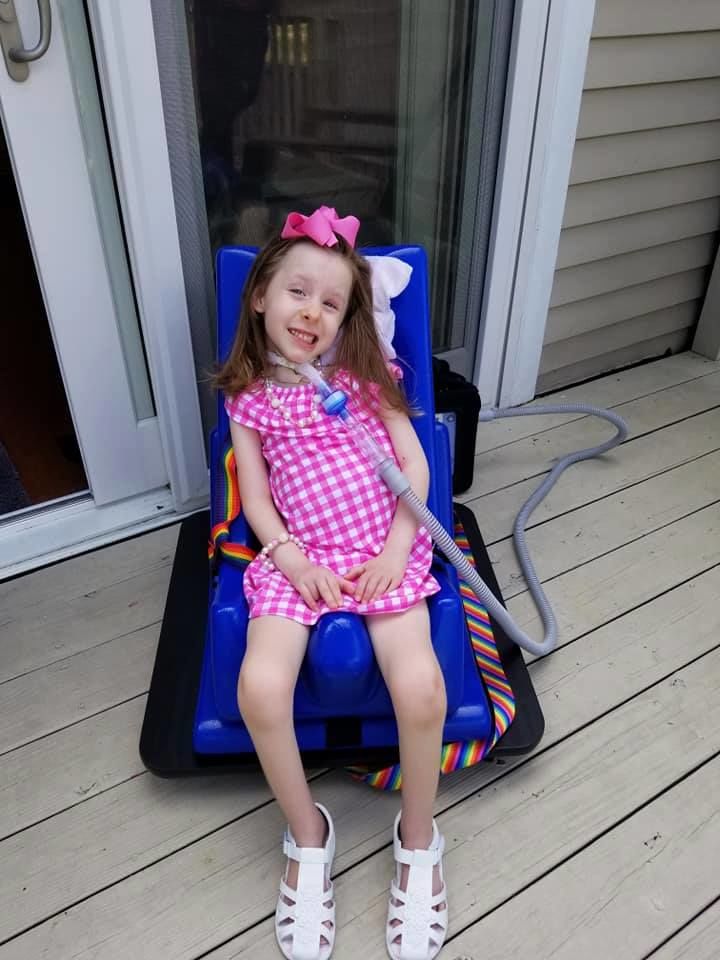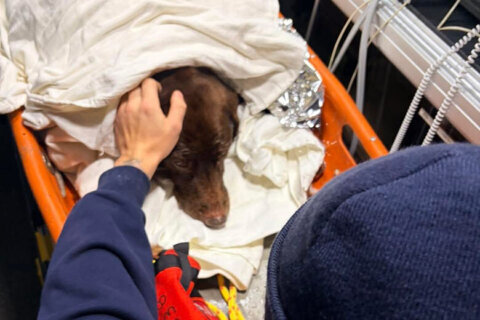It came on suddenly. One Monday in October, Amanda Janeski noticed her 3-year-old twins, Ava and Tristan, seemed to be coming down with colds.
But, by Tuesday, the Severna Park, Maryland, mother could see something was seriously wrong.
Ava’s legs had collapsed underneath her. Janeski took both children to the doctor, who diagnosed pneumonia, and said if Ava’s legs weren’t better by the next day, she should come back.
But while Tristan improved, Ava worsened.
Janesksi said at 4 a.m. the next morning, Ava’s breathing was labored. She took her daughter to the emergency room at Anne Arundel Medical Center.

“I wasn’t there for five minutes and they had transport from Johns Hopkins on the way because they knew exactly what this was — that it was presenting as acute flaccid myelitis,” Janesksi said.
The Centers for Disease Control and Prevention describes acute flaccid myelitis, or AFM, as a rare but serious condition that attacks the nervous system, specifically the spinal cord. It causes muscles to become weak, in many cases, leaving patients paralyzed. It has been described as a polio-like disease, but the CDC says among the AFM patients its tracked, test results have been negative for polio.
In 2019, 20 cases have been reported. There have been 587 cases confirmed since the CDC began tracking cases in 2014. The number of cases increased — mostly in young children — every two years since 2014.
In the days after she contracted the disease, Ava was left unable to move from the neck down, and she had to be put on a ventilator.
Janeski said she’d like parents to know that should their child present with cold-like symptoms that develop into muscle weakness, they should seek medical care immediately.
“I just want to emphasize how quick it changes … take it serious and get checked. If we hadn’t taken this seriously, and just put her back to bed” that morning when Ava had trouble breathing, “she wouldn’t have woken up,” Janeski said.
There is no cure for AFM, and the treatment consists of intensive rounds of several different kinds of therapy. Ava was at the pediatric intensive care unit at Johns Hopkins for one month, and was then transferred to the Kennedy-Krieger Institute for more treatment.
After those four months, Ava was ready to go home. Though that was happy news for her mom and the rest of the family, there was also a wrenching moment when Ava asked her mom, “And then I’ll walk?”
“I had to leave the room — that was the most devastating thing,” Janeski said.

The mother explained that in Ava’s mind, being cleared to come home meant she’d be “all better,” returned to her bouncy self … the little girl who danced and wanted to be a ballerina. But for Ava, Janeski was told, the likelihood of walking again is remote.
“They said the damage is very severe. They’ve told us with the research they have now, that she won’t walk,” Janeski said.
There are hopeful signs — little flickers of hand movement, for example — but Janeski said her hopes are tied to advances in stem cell research. “We were told that’s kind of her only hope,” she said.
Janeski added that she is not banking on a cure, but for therapy that could allow for more advancement and recovery of movement for Ava.
The impact of Ava’s condition has meant big changes for the family. The daily routine is built around caring for a 4-year-old girl who needs to be turned in her sleep, and requires intensive therapy at Baltimore’s Kennedy-Krieger Institute up to three times a week.
Though Janeski said the family’s been lucky in one sense — the AFM diagnosis qualifies them for insurance coverage under a state program that includes the intensive treatment Ava receives — things such as transportation and mobility in the home are a challenge.
So, on Sunday, Sept. 15, there’s a fundraiser set up. From 10 a.m. to 4 p.m., there will be games and a raffle at the Earleigh Heights Volunteer Fire Department Hall in Severna Park. At 5 p.m., there will be a silent auction and spaghetti dinner. Tickets are $20.
There’s also a GoFundMe page set up by the family.
The GoFundMe page includes Ava’s nickname of “Princess Baby Bird.” Her mom said when asked, Ava, whose name means “little bird,” will tell people not to call her Ava, but Baby Bird.
And, like many little girls her age, Janeski said Ava is obsessed with princesses. That helped when Janeski had to explain why Ava couldn’t move her arms and legs. She would tell Ava, “Oh, your arms and legs are sleeping like Sleeping Beauty.” At the same time, Janeski said she has been honest with Ava about the likelihood for recovery, and they take things as they come.
For now, Ava’s most excited about Sunday’s fundraiser, which she calls her party.







